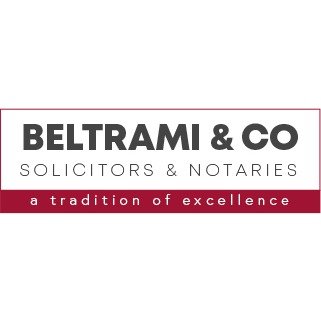Best Restructuring & Insolvency Lawyers in Glasgow
Share your needs with us, get contacted by law firms.
Free. Takes 2 min.
List of the best lawyers in Glasgow, United Kingdom
About Restructuring & Insolvency Law in Glasgow, United Kingdom
Restructuring and insolvency law in Glasgow is designed to help individuals and businesses that are facing financial distress or are unable to meet their financial obligations. This area of law covers the legal processes for reorganising debt, rescuing struggling enterprises, and winding down companies that can no longer trade solvently. The legal framework aims to balance the interests of debtors, creditors, and other stakeholders. In Glasgow, as in the rest of Scotland, insolvency law is shaped by UK-wide legislation, but there are specific Scottish procedures, particularly where court processes are involved.
Why You May Need a Lawyer
If you or your business are facing financial difficulties, a restructuring and insolvency lawyer can provide essential guidance. Common scenarios where legal assistance is crucial include:
- Personal insolvency, such as bankruptcy or sequestration - Business insolvency, including administration, liquidation, or receivership - Negotiating with creditors to restructure debts or extend payment terms - Defending claims from creditors or former employees - Understanding directors’ responsibilities and minimizing risk of personal liability - Handling complex asset sales or transfers during insolvency - Ensuring legal requirements are met for statutory notices and processes - Advising on turnaround and recovery strategies to rescue struggling businesses A specialist lawyer will ensure that your rights and interests are protected, and can help navigate the complex procedures to reach the most favourable outcome.
Local Laws Overview
Restructuring and insolvency law in Glasgow is governed by a combination of UK legislation and specific Scottish rules. The core statutes include the Insolvency Act 1986 and the Bankruptcy (Scotland) Act 2016. These laws establish the processes for both personal and corporate insolvency, set out the duties of insolvency practitioners, and provide frameworks for administration, liquidation, company voluntary arrangements, and individual voluntary arrangements. Scottish law also includes unique provisions, such as specific court procedures and certain forms of protected trust deeds for individuals.
Key features include: - Sequestration is the Scottish term for individual bankruptcy - Protected Trust Deeds are a Scottish alternative to bankruptcy for individuals - Company insolvency may be managed through administration, liquidation, or receivership - Directors of insolvent companies have statutory duties to act in the best interests of creditors - Insolvency practitioners must be licensed under Scottish and UK-wide regulations - The courts in Glasgow handle disputes and applications related to insolvency under the Sheriff Court and Court of Session Understanding these distinctions is essential to navigating the process effectively.
Frequently Asked Questions
What does insolvency mean in Scotland?
Insolvency is when an individual or business cannot pay their debts as they become due or when liabilities exceed assets. It covers a range of legal solutions for dealing with unmanageable debts in Scotland, including sequestration for individuals and liquidation for companies.
What options are available for individuals facing insolvency in Glasgow?
Common options include sequestration (bankruptcy), Protected Trust Deeds, and Debt Arrangement Schemes. Each has different eligibility criteria, benefits, and consequences for your assets and credit rating.
What happens to a company that becomes insolvent?
An insolvent company may enter liquidation (winding up), administration (an attempt to rescue the business), or receivership. Creditors may pursue payment, and company assets may be sold to repay outstanding debts.
Can directors of an insolvent company be held personally liable?
Directors have a duty to act in the best interests of creditors once a company faces insolvency. Personal liability can arise if directors are found to have continued trading wrongfully or fraudulently, or if they breach their statutory duties.
What is a Protected Trust Deed and how does it work?
A Protected Trust Deed is a voluntary but legally binding agreement in Scotland where an individual repays part of their debts over a fixed period (usually four years), after which most remaining debts are written off. A licensed insolvency practitioner administers the deed.
What are the warning signs that a business may need to consider restructuring or insolvency?
Common signs include persistent cash flow problems, mounting debts, inability to pay suppliers or staff, creditor pressure or threats of legal action, and regular breaches of loan covenants or overdrafts.
Do I need an insolvency practitioner or a solicitor for my case?
Insolvency practitioners are licensed to manage formal insolvency processes such as administration or liquidation. Solicitors provide legal advice, represent you in negotiations or court, and can guide you on your rights and responsibilities.
How are creditors paid in an insolvency process?
Creditors are paid from the assets available in a prescribed order of priority, starting with secured creditors, then preferential creditors (such as employees), followed by unsecured creditors. If funds are insufficient, some debts may not be fully repaid.
Can I avoid insolvency by negotiating with creditors?
Yes, restructuring debts through an informal agreement or entering a Company Voluntary Arrangement can allow you to pay off debts over time and avoid formal insolvency if creditors agree to new terms.
How will insolvency affect my credit rating or ability to run a business in the future?
Personal insolvency will significantly impact your credit rating for several years and may restrict your ability to obtain credit or act as a company director. Company insolvency can also have reputational effects and potential disqualification for directors, depending on circumstances.
Additional Resources
For further information and support, the following resources are especially helpful:
- Accountant in Bankruptcy (AiB Scotland) - Scottish government agency overseeing individual insolvency - Insolvency Service (UK-wide) - Government body providing information on company and individual insolvency - Citizens Advice Scotland - Free advice and support for people facing debt problems - Law Society of Scotland - Directory of qualified solicitors experienced in restructuring and insolvency - Institute of Chartered Accountants of Scotland (ICAS) - List of licensed insolvency practitioners Accessing these organisations can provide valuable guidance and help you find professional assistance.
Next Steps
If you are concerned about insolvency or need help with debt restructuring in Glasgow, it is important to act promptly. Consider the following steps:
- Assess your financial situation and gather all documentation relating to debts and assets - Seek initial advice from a debt advice charity, Citizens Advice, or a relevant government body - Contact a qualified solicitor or insolvency practitioner with experience in Scottish law - Prepare questions about your options, the implications of different procedures, and your obligations - Take prompt action to prevent matters from worsening and to protect your interests A legal professional will guide you through the complexities and help you choose the right course to achieve the best possible outcome for yourself or your business.
Lawzana helps you find the best lawyers and law firms in Glasgow through a curated and pre-screened list of qualified legal professionals. Our platform offers rankings and detailed profiles of attorneys and law firms, allowing you to compare based on practice areas, including Restructuring & Insolvency, experience, and client feedback.
Each profile includes a description of the firm's areas of practice, client reviews, team members and partners, year of establishment, spoken languages, office locations, contact information, social media presence, and any published articles or resources. Most firms on our platform speak English and are experienced in both local and international legal matters.
Get a quote from top-rated law firms in Glasgow, United Kingdom — quickly, securely, and without unnecessary hassle.
Disclaimer:
The information provided on this page is for general informational purposes only and does not constitute legal advice. While we strive to ensure the accuracy and relevance of the content, legal information may change over time, and interpretations of the law can vary. You should always consult with a qualified legal professional for advice specific to your situation.
We disclaim all liability for actions taken or not taken based on the content of this page. If you believe any information is incorrect or outdated, please contact us, and we will review and update it where appropriate.












